
by David Levinson
A spring thaw?
Change appears to be coming to Czechoslovakia. Faced with growing dissatisfaction last year, First Secretary of the Czechoslovakian Communist Party Antonín Novatný invited Leonid Brezhnev to visit Prague last December in the hope of shoring up his position. Instead, Brezhnev was shocked by Novatný’s unpopularity and pushed him to resign as Party Secretary (he remained President).
Alexander Dubček was elected as the new First Secretary on January 5th and soon began on a course of reforms. On February 22nd, in the presence of Brezhnev, Dubček announced that steps would be taken to bring about “the widest possible democratization of the entire socio-political system.” A few days later, the Party adopted the first draft of an action program which allows greater freedom of speech (much of the resistance to Novatný came from the Writer’s Union) and more autonomy for Slovakia (the Czech Novatný had tried to curb Slovakian culture and language; Dubček is Slovakian). February ended with the release of the first uncensored magazine by the Writer’s Union.
 Alexander Dubček addresses the nation after taking office.
Alexander Dubček addresses the nation after taking office.
On March 4th, the Party Presidium voted to dismantle press censorship, and by the end of the week the papers were calling for Novatný to step down as President. On the 14th, the Party voted to politically rehabilitate party members who had been purged in the 1950s. By the 22nd, the pressure was too much for Novatný and he reluctantly resigned as President. He will be replaced by Ludvík Svoboda, who had been purged, but rehabilitated at the request of Khrushchev.
The reaction in the East Bloc has been as might be expected. A Warsaw Pact meeting was hastily called for the 23rd in Dresden. The Poles, in particular, seemed unhappy with Dubček’s reforms. They may be nervous due to the student protests in Warsaw and elsewhere in the country. The word “counterrevolution” was mentioned and the specter of Hungary was raised. Dubček seems to have calmed fears for now.
Can Dubček keep the Soviets at arm’s length and bring about his reforms? Tito managed it, but Yugoslavia isn’t in the Warsaw Pact and doesn’t have a border with the Soviet Union. Only time will tell.
Seeking answers
The stories in this month’s IF grapple with deep questions. Some are big, such as expedience versus morality or the meaning of bravery and sacrifice; others are more personal. And Poul Anderson calls everything we think about the future into question.
 Supposedly for Dismal Light, which doesn’t even have two male characters. Generic art by Pederson
Supposedly for Dismal Light, which doesn’t even have two male characters. Generic art by Pederson
Continue reading [April 2, 1968] Asking the big questions (May 1968 IF)

![[April 2, 1968] Asking the big questions (May 1968 <i>IF</i>)](https://galacticjourney.org/wp-content/uploads/2023/03/IF-1968-05-Cover-569x372.jpg)
![[March 2, 1968] Rules and Regulations (April 1968 <i>IF</i>)](https://galacticjourney.org/wp-content/uploads/2023/02/IF-1968-04-Cover-639x372.jpg)
 The stars of the show. (l.) Jean-Claude Killy sporting his medals. (r.) Peggy Fleming in her spectacular performance.
The stars of the show. (l.) Jean-Claude Killy sporting his medals. (r.) Peggy Fleming in her spectacular performance. The Advanced Guard prepare to study the fauna of Chryseis. Art by Vaughn Bodé
The Advanced Guard prepare to study the fauna of Chryseis. Art by Vaughn Bodé![[February 4, 1968] More of the Same (March 1968 <i>IF</i>)](https://galacticjourney.org/wp-content/uploads/2023/01/IF-1968-03-Cover-434x372.jpg)
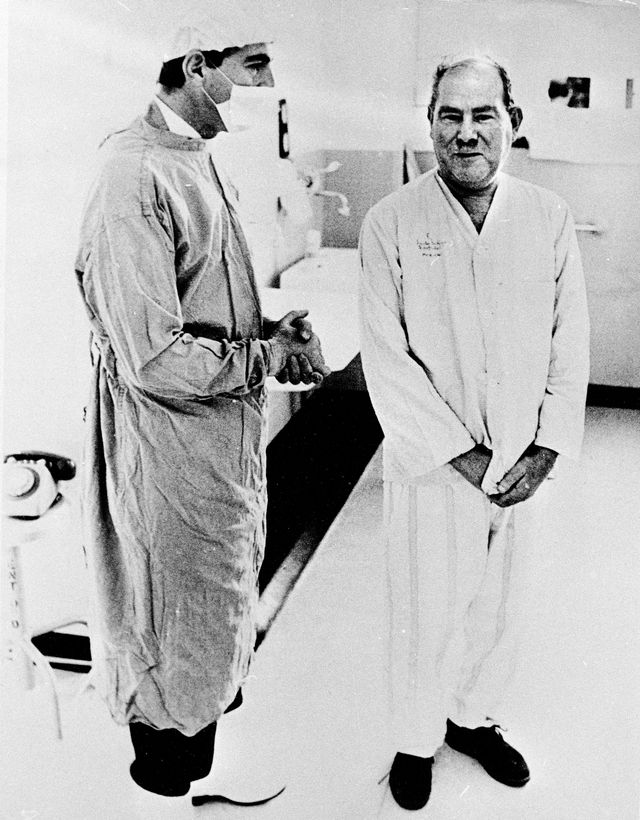 Dr. Barnard (I.) and Philip Blaiberg (r.), probably before the surgery.
Dr. Barnard (I.) and Philip Blaiberg (r.), probably before the surgery. Dr. Shumway at a press conference last fall (l.), Mike Kasperak and his wife, Ferne (r.)
Dr. Shumway at a press conference last fall (l.), Mike Kasperak and his wife, Ferne (r.) This unpleasing collage is for Harlan’s new story. Art by Wenzel
This unpleasing collage is for Harlan’s new story. Art by Wenzel![[December 2, 1967] Women and Men (January 1968 <i>IF</i>)](https://galacticjourney.org/wp-content/uploads/2022/11/IF-1968-01-Cover-672x372.jpg)
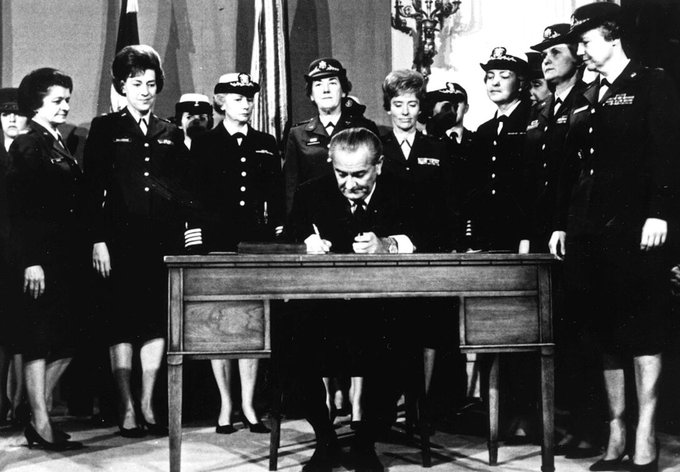 President Johnson signing the law allowing women to rise in the ranks.
President Johnson signing the law allowing women to rise in the ranks.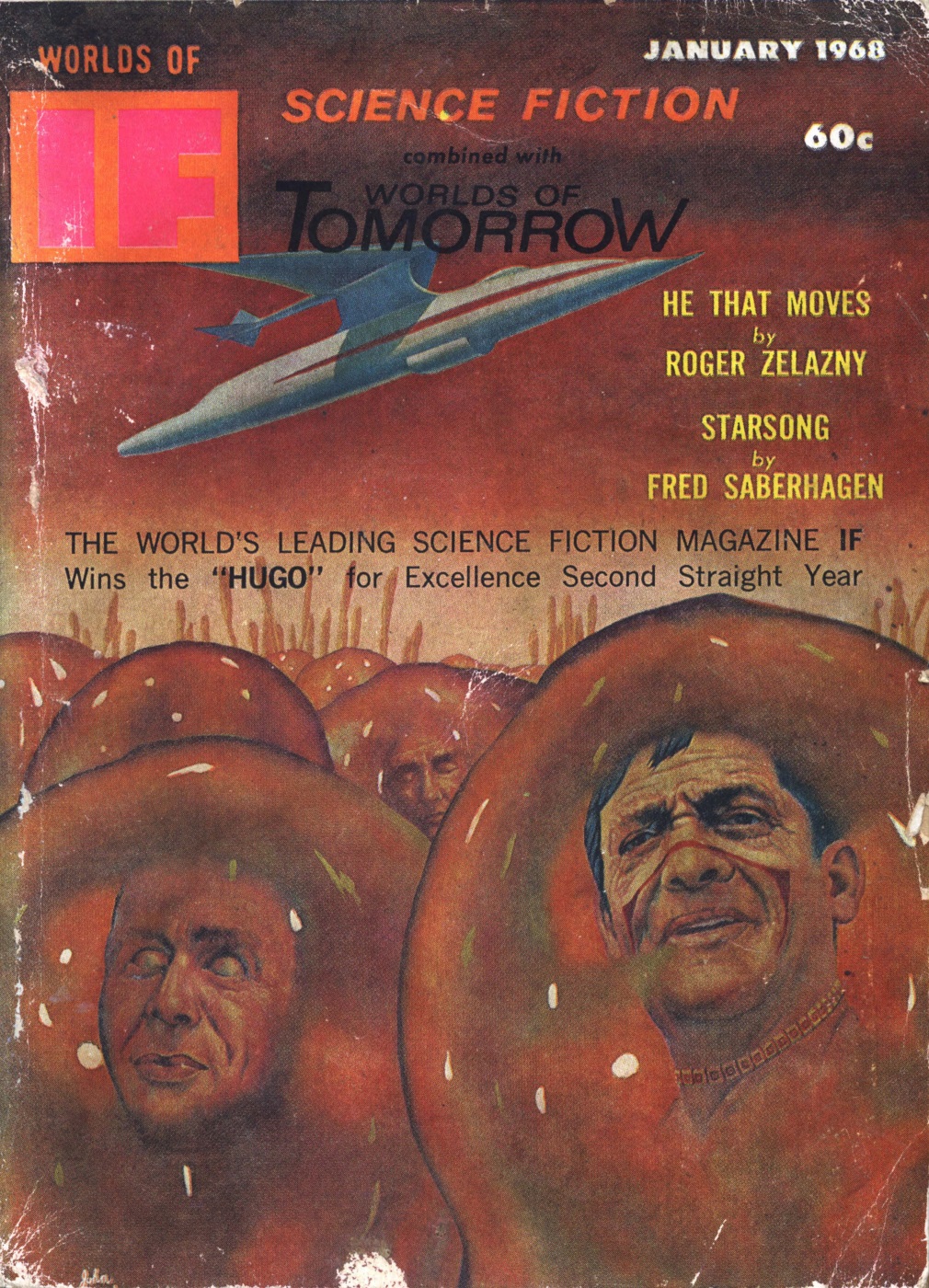 What are these people doing in these blobs? Art by Pederson
What are these people doing in these blobs? Art by Pederson![[November 4, 1967] Conflicts (December 1967 <i>IF</i>)](https://galacticjourney.org/wp-content/uploads/2022/10/IF-1967-12-Cover-672x372.jpg)
 Joan Baez is arrested in Oakland.
Joan Baez is arrested in Oakland. Fr. Berrigan pouring blood into a file drawer.
Fr. Berrigan pouring blood into a file drawer. Futuristic combat in The City of Yesterday. Art by Chaffee
Futuristic combat in The City of Yesterday. Art by Chaffee![[October 2, 1967] Switching Sides (November 1967 <i>IF</i>)](https://galacticjourney.org/wp-content/uploads/2022/09/IF-1967-11-Cover-672x372.jpg)
 The logo for the traffic changeover.
The logo for the traffic changeover. This photo was staged several months ago as part of the education campaign. The real thing was much less chaotic.
This photo was staged several months ago as part of the education campaign. The real thing was much less chaotic. A newcomer gets the cover. Does he deserve it? Art by Vaughn Bodé
A newcomer gets the cover. Does he deserve it? Art by Vaughn Bodé![[September 2, 1967] Of Genies and Bottles (October 1967 <i>IF</i>)](https://galacticjourney.org/wp-content/uploads/2022/08/IF-Cover-1967-10-672x372.jpg)
 William C. Foster, the chief American representative to the Eighteen Nation Committee on Disarmament.
William C. Foster, the chief American representative to the Eighteen Nation Committee on Disarmament. The art is intriguing, but none of this happens in Hal Clement’s new novel. Art by Castellon
The art is intriguing, but none of this happens in Hal Clement’s new novel. Art by Castellon![[August 2, 1967] The Bounds of Good Taste (September 1967 <i>IF</i>)](https://galacticjourney.org/wp-content/uploads/2022/07/IF-Cover-1967-09-672x372.jpg)
 President de Gaulle with foot firmly in mouth.
President de Gaulle with foot firmly in mouth. This alien dude ranch has become a popular honeymoon spot. Art by Gray Morrow
This alien dude ranch has become a popular honeymoon spot. Art by Gray Morrow![[July 4, 1967] Angels and Demons (August 1967 <i>IF</i>)](https://galacticjourney.org/wp-content/uploads/2022/06/IF-1967-08-Cover-645x372.jpg)
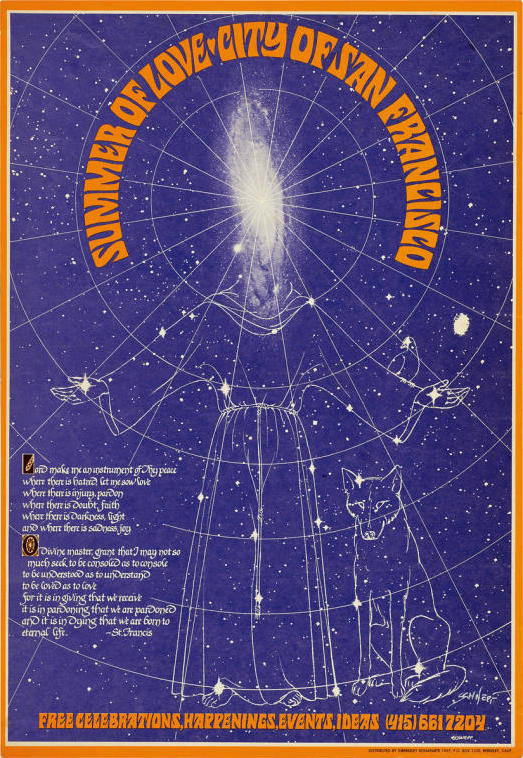 The official poster created by Bob Schnepf
The official poster created by Bob Schnepf The festival was delayed one week due to bad weather.
The festival was delayed one week due to bad weather. This poster is a good example of the new psychedelic art style.
This poster is a good example of the new psychedelic art style.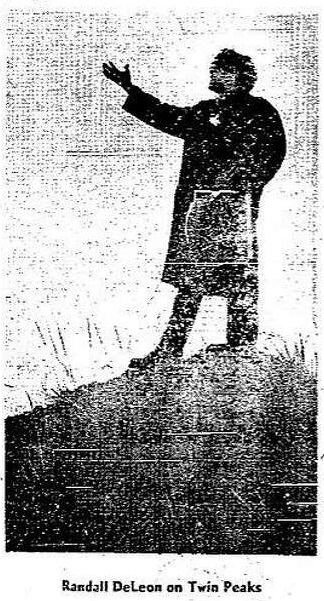 Hippie Randall DeLeon greets the sun and makes the front page of the San Francisco Chronicle.
Hippie Randall DeLeon greets the sun and makes the front page of the San Francisco Chronicle.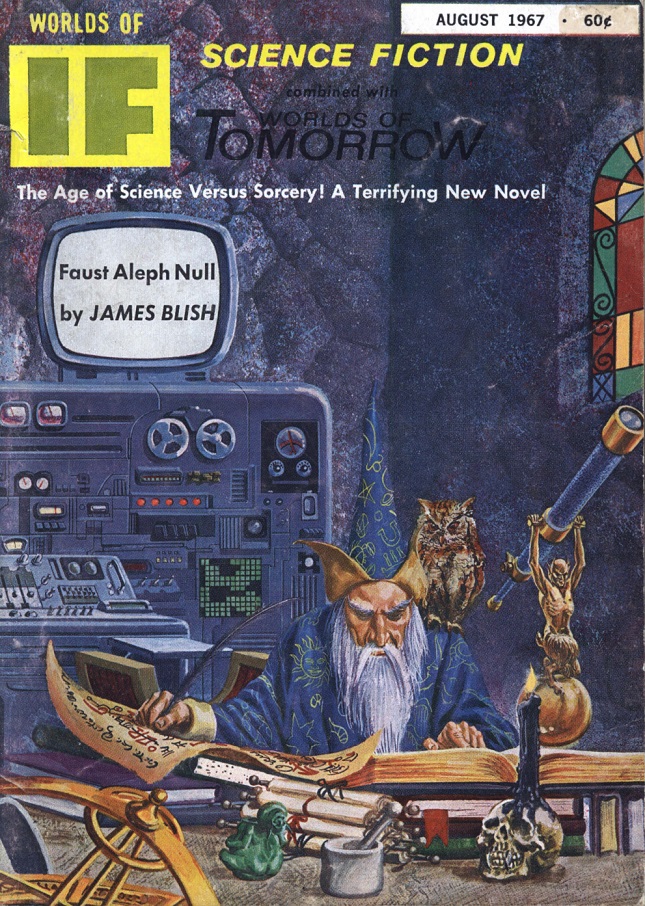 That’s not quite how black magic works in the new Blish novel, but it ought to be. Art by Morrow
That’s not quite how black magic works in the new Blish novel, but it ought to be. Art by Morrow![[June 2, 1967] Uneasy Alliances (July 1967 <i>IF</i>)](https://galacticjourney.org/wp-content/uploads/2022/05/IF-Cover-1967-07-672x372.jpg)

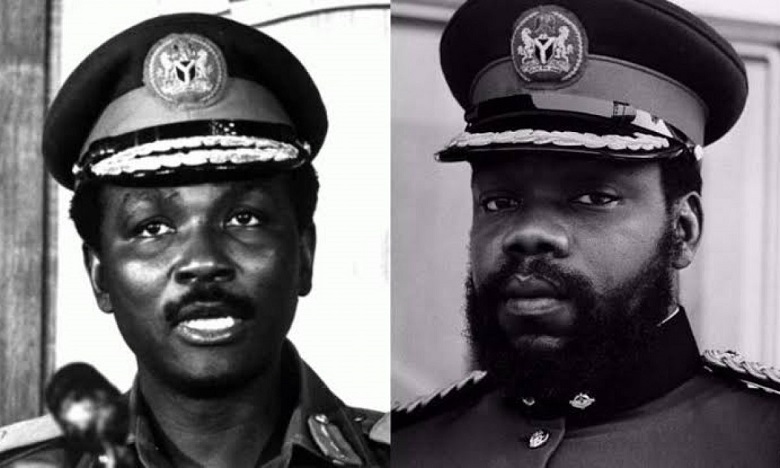 l.: Colonel Yakubu Gowon of Nigeria. r.: Colonel Odumegwu Ojukwu of Biafra.
l.: Colonel Yakubu Gowon of Nigeria. r.: Colonel Odumegwu Ojukwu of Biafra.  Joe Miller is the most fearsome warrior these vikings have ever seen. Art by Gaughan
Joe Miller is the most fearsome warrior these vikings have ever seen. Art by Gaughan